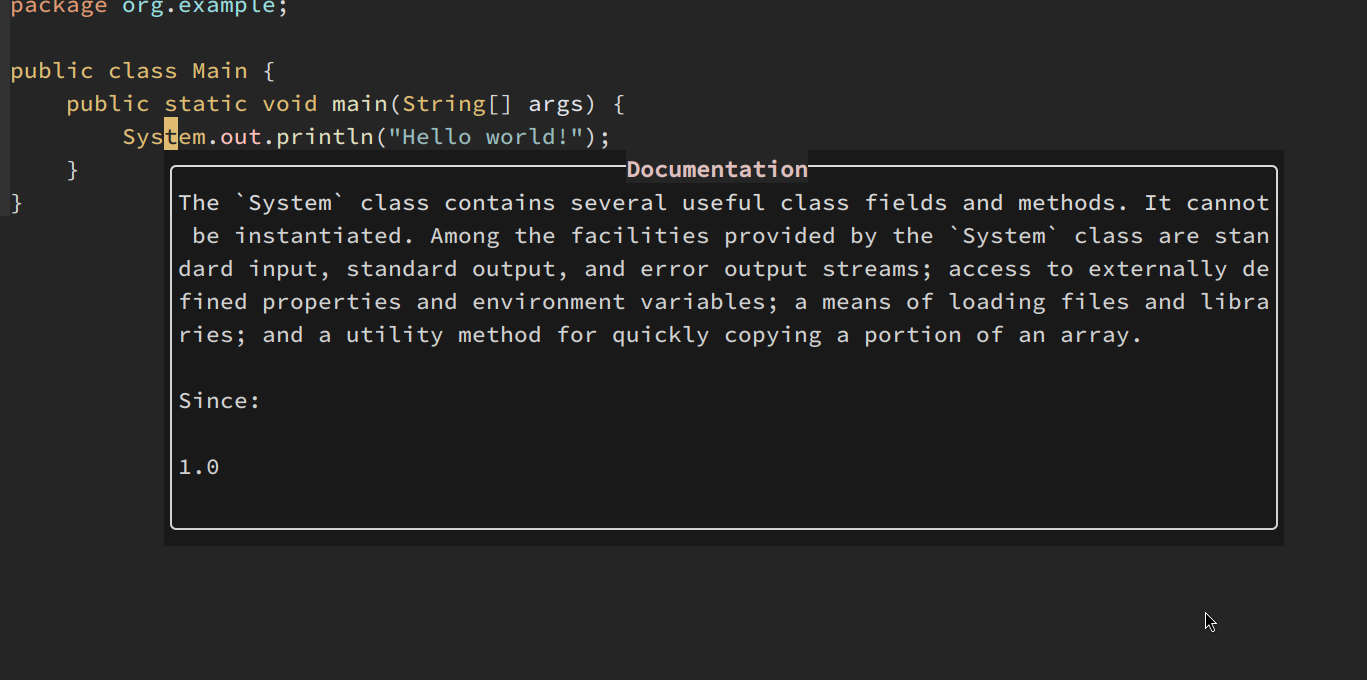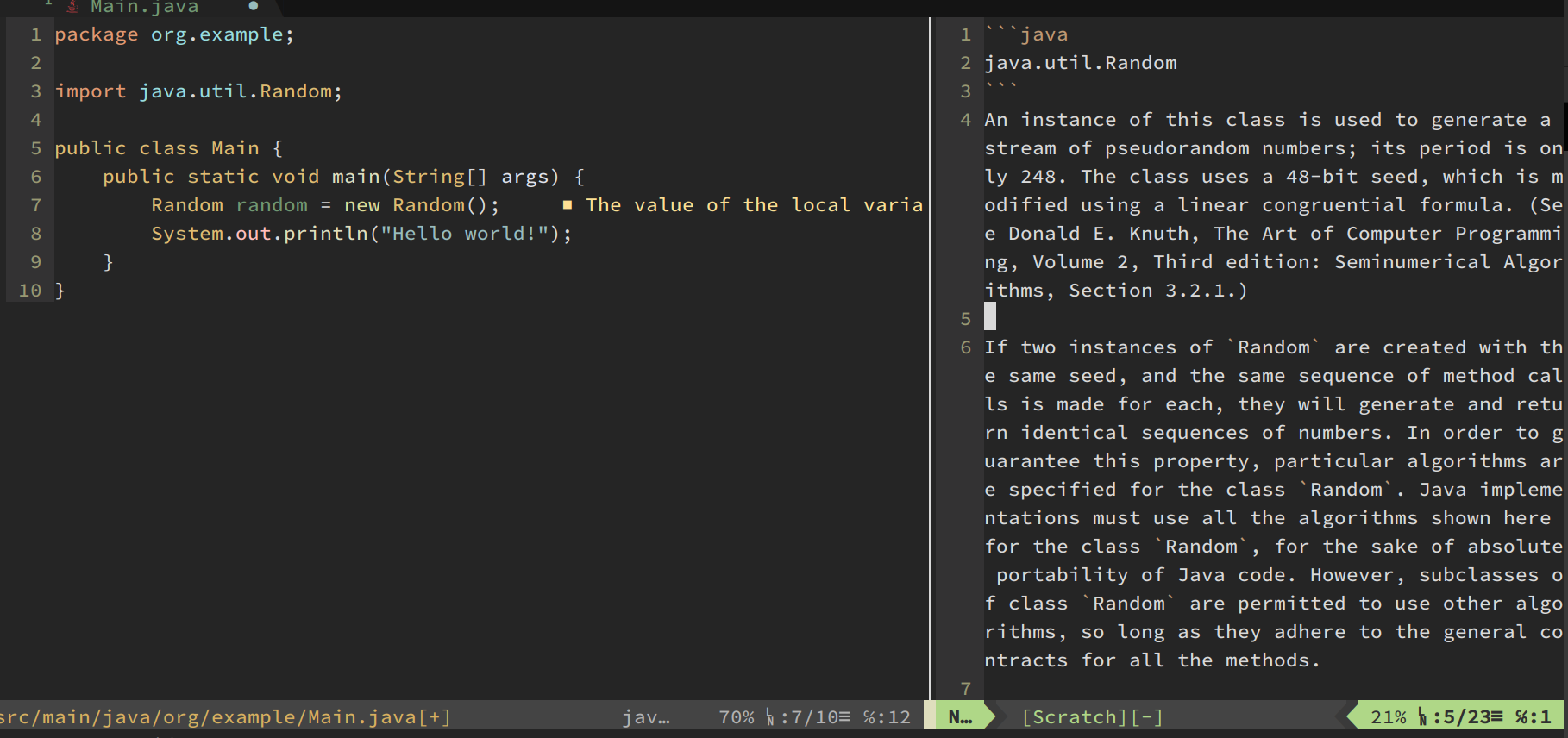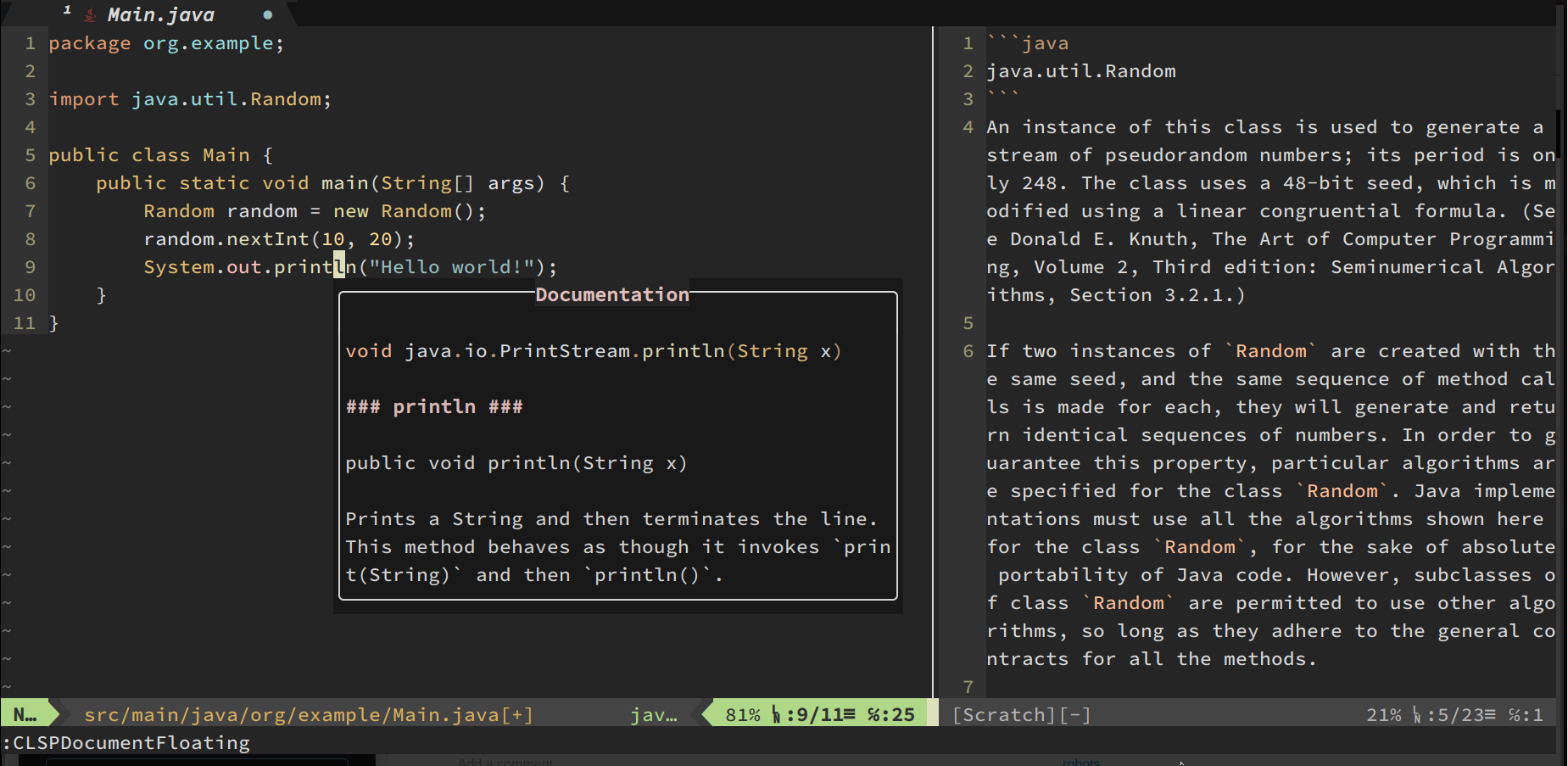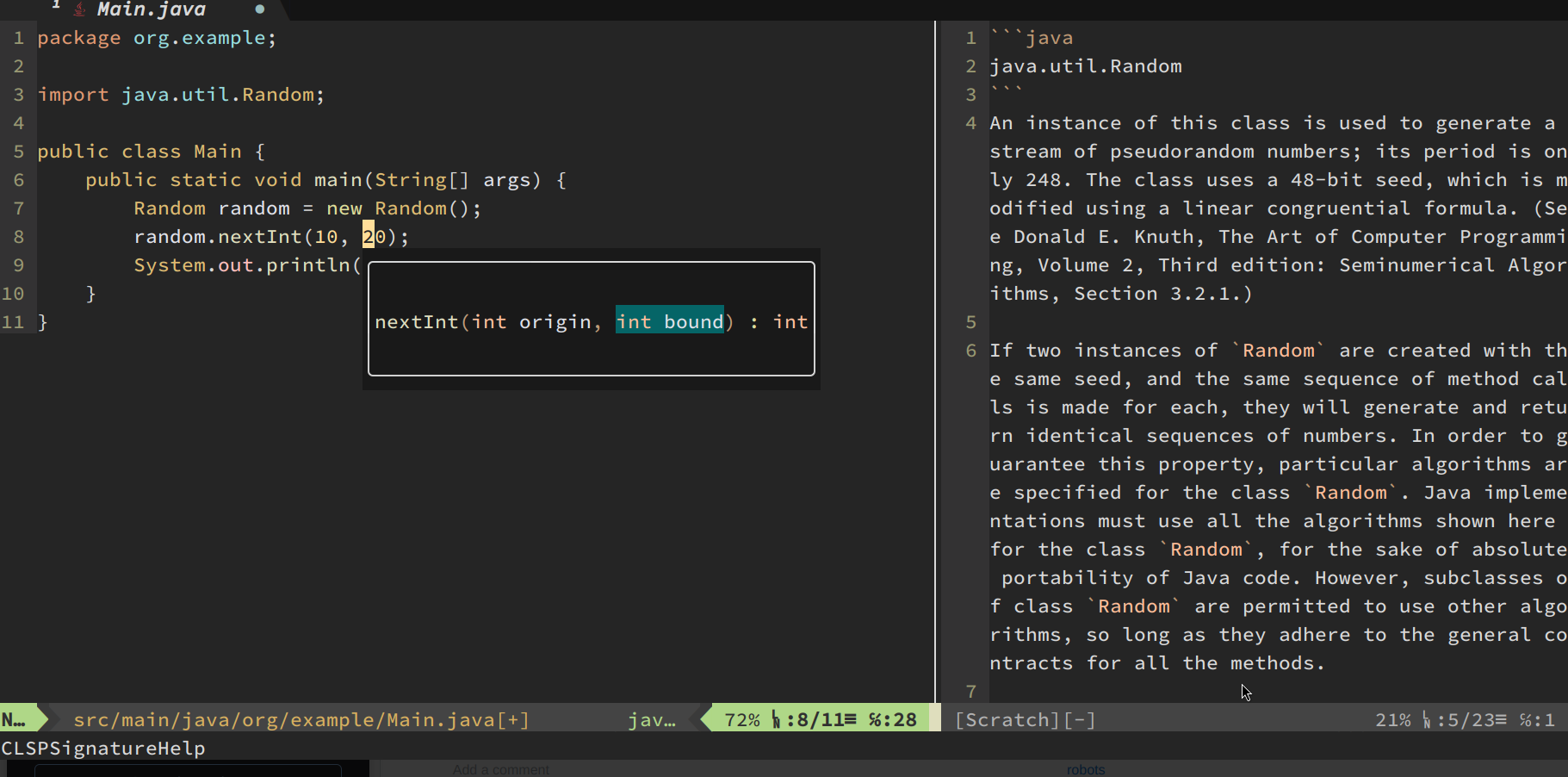Simple / hacky VIM LSP front-end.
This is a hacky Vim-LSP front-end plugin. I'm not an expert on neovim / lua, so I just put a bunch of goggled codes that works for my own scenario.
I really like the simplicity and design simplicity around VIM-built in functionality like Quickfix window. So I don't like plugins that is too specific for a particular language, or too fancy that changes the core behavior of vim / neovim.
This plugin only do the following four things:
-
Expose some LSP lua function to user command, so I can call them more easily.
-
Adjust the built-in signature helper function, so it could be semi-transparent (winblend), and:
- Make the behavior more sensible, for example, run
:CLSPSignatureHelptwice will close the already opened window instead of focus to it. - Add a simple user command
:CLSPSignatureHelpToggleAlwaysOnto toggle if the signature helper window should show up whenCursorHold.
- Make the behavior more sensible, for example, run
-
Provide a more sensible floating documentation viewer (vim.lsp.buf.hover).
- Run
:CLSPDocumentationFloatingtwice will close the window. - Add key binding to foucs / close / navigate the floating window.
- Support semi-transparent
- Run
-
Provide a command to open documentation in (v)split window.
If you are looking for something that's more advanced, trouble.vim might be a better choice.
You could install it with plugin manager like vim-plug
Plug 'brianhsu/vim-clsp'
You could initialize this plugin by add the following lines in your init.lua.
local clsp = require('vim-clsp')
clsp.setup({})The following are the default settings, you could provide your own to override. Everything is optional, if you don't specify it, it will use the default.
local clsp = require('vim-clsp')
clsp.setup({
floating_document_viewer = {
win_blend = 15,
win_config = {
title = "Documentation",
border = "rounded",
width_calculator = function()
return math.floor(vim.api.nvim_win_get_width(vim.api.nvim_get_current_win()) * 0.6)
end
},
keymap = {
scroll_line_up = '<C-y>',
scroll_line_down = '<C-e>',
scroll_page_up = '<C-b>',
scroll_page_down = '<C-f>',
focus = '<CR>',
close = 'q'
}
},
side_document_viewer = {
win_config = {
split = "right", -- left, right, above, below
size_calculator = function ()
if M.config.win_config.split == 'left' or M.config.win_config.split == 'right' then
return math.floor(vim.api.nvim_win_get_width(vim.api.nvim_get_current_win()) * 0.4)
else
return math.floor(vim.api.nvim_win_get_height(vim.api.nvim_get_current_win()) * 0.4)
end
end
}
},
signature_viwer = {
win_blend = 15,
win_config = {
border = "rounded"
}
}
}) vim.api.nvim_create_user_command('CLSPDocumentationFloating', floating_document_viewer.toggle_document_floating, {})
vim.api.nvim_create_user_command('CLSPDocumentationSide', side_document_viewer.open_document_side, {})
vim.api.nvim_create_user_command('CLSPSignatureHelp', signature_viewer.open_signature_viwer, {})
vim.api.nvim_create_user_command('CLSPSignatureHelpToggleAlwaysOn', signature_viewer.toggle_is_always_on, {})
vim.api.nvim_create_user_command('CLSPDeclaration', function() vim.lsp.buf.declaration() end, {})
vim.api.nvim_create_user_command('CLSPDefinition', function() vim.lsp.buf.definition() end, {})
vim.api.nvim_create_user_command('CLSPDocumentSymbol', function() vim.lsp.buf.document_symbol() end, {})
vim.api.nvim_create_user_command('CLSPFormat', function() vim.lsp.buf.format() end, {})
vim.api.nvim_create_user_command('CLSPImplementation', function() vim.lsp.buf.implementation() end, {})
vim.api.nvim_create_user_command('CLSPIncommingCalls', function() vim.lsp.buf.incoming_calls() end, {})
vim.api.nvim_create_user_command('CLSPOutgoingCalls', function() vim.lsp.buf.outgoing_calls() end, {})
vim.api.nvim_create_user_command('CLSPReference', function() vim.lsp.buf.references() end, {})
vim.api.nvim_create_user_command('CLSPRename', function() vim.lsp.buf.rename() end, {})
vim.api.nvim_create_user_command('CLSPTypeDefinition', function() vim.lsp.buf.type_definition() end, {})
vim.api.nvim_create_user_command('CLSPTypeHierarchy', function() vim.lsp.buf.typehierarchy() end, {})
vim.api.nvim_create_user_command('CLSPWorkspaceSymbol', function() vim.lsp.buf.workspace_symbol() end, {})


